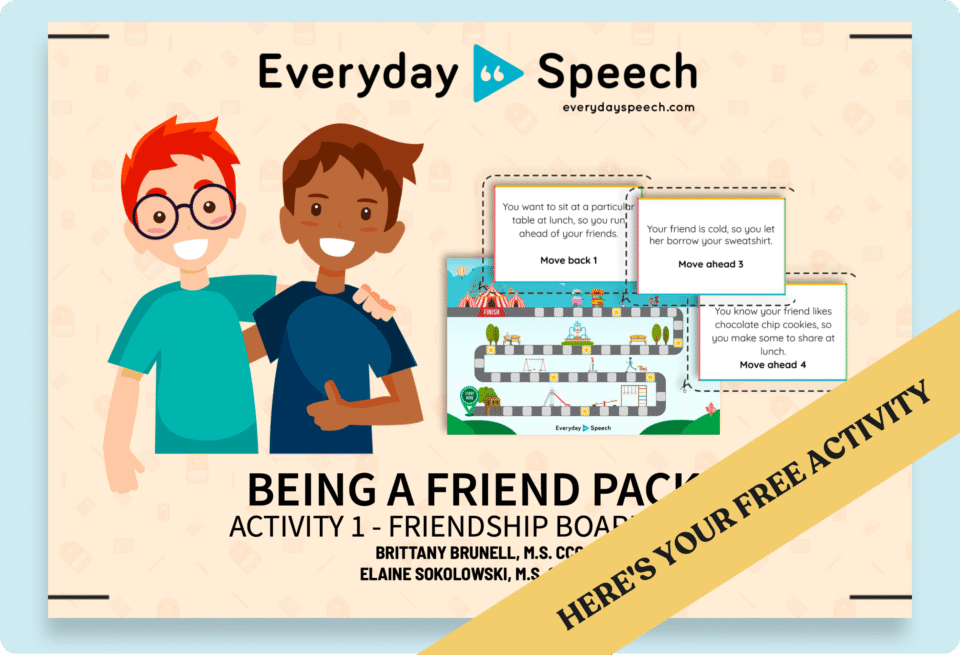Developing Close Friendships: A Guide for Special Education Educators
Get free social skills materials
No-prep lessons on self-regulation, emotional recognition, conversation skills, and more.
Sign up hereIntroduction
Close friendships play a crucial role in our lives, providing emotional support, companionship, and a sense of belonging. For students in special education, developing these friendships can be challenging, but with the right guidance and support, they can form meaningful connections. This blog post will explore an easy-to-implement activity, discussion questions, and related skills to help educators facilitate the process of developing close friendships among their students.
No-Prep Activity
One simple activity that requires no preparation or materials is the “Pair and Share” exercise. In this activity, students are paired up and given a topic or question to discuss. Each student takes turns sharing their thoughts and listening to their partner. After a few minutes, the pairs switch, and students get to know another classmate. This activity allows students to practice communication skills, find common interests, and learn more about each other, all of which are essential steps in forming close friendships.
Discussion Questions
- What qualities do you look for in a close friend? How can you identify these qualities in others?
- Can you think of a time when you made a new friend? What steps did you take to get closer to that person?
- Why is it essential to take turns in new friendships and not overwhelm the other person with too much attention?
- What are some activities or interests you could share with a friend outside of school?
- How can you maintain a friendship over time, even if you don’t see or talk to the person every day?
Related Skills
While developing close friendships is a significant aspect of social-emotional learning, there are other related skills that students should also develop. These include:
- Active listening: Being able to truly listen and understand what others are saying is vital for building strong connections.
- Empathy: Putting oneself in another person’s shoes and understanding their feelings helps foster deeper relationships.
- Conflict resolution: Learning to navigate disagreements and find solutions is essential for maintaining long-lasting friendships.
- Self-awareness: Understanding one’s own emotions, strengths, and limitations can help students better relate to others.
Next Steps
Now that you have a better understanding of how to support your students in developing close friendships, it’s time to put these ideas into practice. To help you get started, we invite you to sign up for free samples of skill-building materials and resources from Everyday Speech. These resources will provide you with additional tools and strategies to help your students thrive in their social-emotional development.


